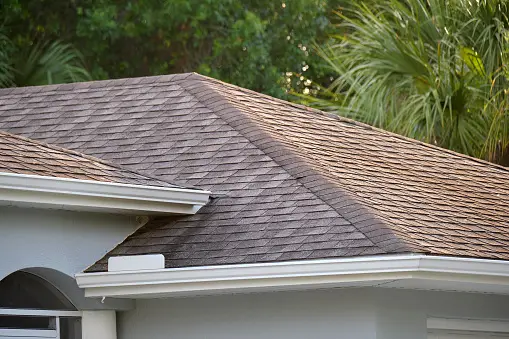The Ultimate Guide to Choosing the Right Asphalt Shingle Roof for Your Home

History and Evolution of Asphalt Roofing
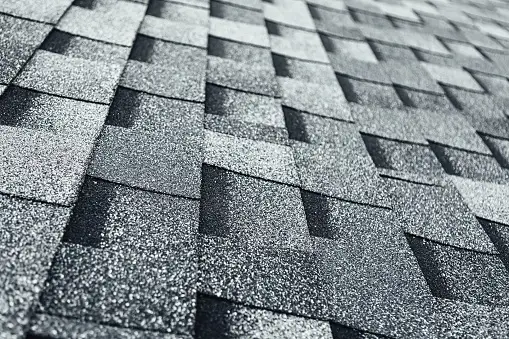
I have installed and repaired asphalt shingle roofs for over 20 years, granting me firsthand observation of how these materials have developed over time. Initially, asphalt shingles were unsophisticated, composed solely of fiberglass mats covered in asphalt. These early products, known as 3-tab shingles, were rather flimsy and offered limited aesthetic options.
- However, around the 1980s, dimensional or architectural shingles gained popularity.
- Their textured shape created attractive shadow lines, and higher asphalt content bolstered durability. Major innovations emerged in the 2000s.
- Manufacturers infused polymer-modified asphalts to mitigate cracking and curling, upgraded to ceramic granule coatings boasting weather-resistance, and integrated organic fiberglass mats with superior tear strength.
- A far wider selection of colors, textures, and designs additionally became available. Presently, high-end luxury shingles emulate premium roofing materials like wood, slate, and tile. Sophisticated installation protocols including protective underlayments, plastic drip edges, and adhesive sealing strips also came about to guard against storm damage and moisture intrusion.
- As sustainability attracts greater emphasis, recyclable asphalt shingle options are now budding too .
- While future developments remain to be seen, asphalt roofing has undoubtedly progressed tremendously from its early days.
Types of Asphalt Roofing
Asphalt Shingles
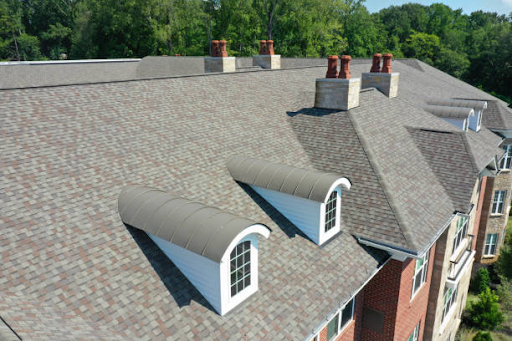
Asphalt shingles are the most common and affordable type of roofing material. They are made from fiberglass mats that are coated with asphalt and then covered with mineral granules. Asphalt shingles are available in a wide variety of colors and styles, and they are relatively easy to install. However, they are not as durable as other types of roofing materials, and they may need to be replaced more often.
Types of Asphalt Shingles
- Three-tab shingles: These are the most basic and least expensive type of asphalt shingle. They are flat and have a uniform thickness.
- Architectural shingles: These shingles are thicker and have a more dimensional appearance. They are also more durable than three-tab shingles.
- Luxury shingles: These are the most expensive type of asphalt shingle. They are very thick and have a variety of features, such as multiple layers and added protection against wind and hail damage.
Asphalt Roll Roofing

Asphalt roll roofing is a less common type of asphalt roofing material. It is made from the same materials as asphalt shingles, but it is sold in rolls instead of individual shingles. Asphalt roll roofing is typically used for low-slope roofs, such as garages and sheds. It is a less expensive option than asphalt shingles, but it is also less durable and may not last as long.
Types of Asphalt Roll Roofing
- Smooth roll roofing: This is the most basic type of asphalt roll roofing. It is smooth and has no texture.
- Textured roll roofing: This type of asphalt roll roofing has a textured surface that can help to hide imperfections in the roof.
- Granule-surfaced roll roofing: This type of asphalt roll roofing has a surface that is covered with mineral granules. This can help to protect the roof from UV damage and make it more resistant to fire.
Asphalt Roof Tiles
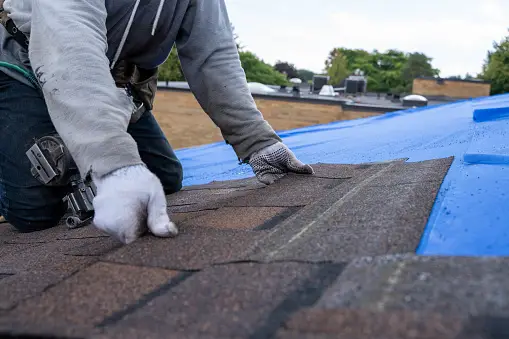
Asphalt roof tiles are a type of roofing material that is made from asphalt and other materials, such as concrete or slate. They are typically used on commercial and industrial buildings, but they can also be used on residential buildings. Asphalt roof tiles are very durable and can last for many years. However, they are also more expensive than asphalt shingles or asphalt roll roofing.
Types of Asphalt Roof Tiles
- Concrete roof tiles: These tiles are made from a mixture of concrete and asphalt. They are very heavy and strong, and they can withstand a lot of abuse.
- Slate roof tiles: These tiles are made from natural slate. They are very beautiful and can last for hundreds of years. However, they are also very expensive.
Asphalt Shingles as the Affordable Roofing Solution
When it comes to safeguarding your home, the roof stands as a crucial sentinel, shielding your abode from the elements. While various roofing materials exist, asphalt shingles have emerged as a popular and affordable choice for many homeowners. Let’s delve into the key advantages that make asphalt roofs an attractive option for budget-conscious homeowners.
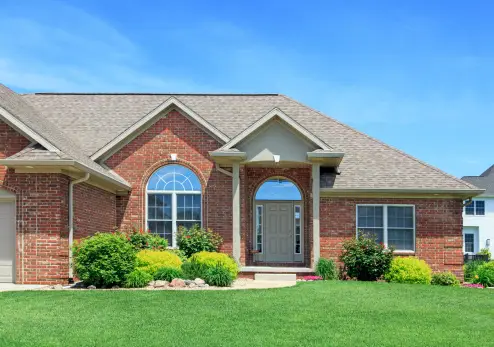
Cost-Effective Installation and Maintenance
Asphalt shingles are renowned for their ease of installation, requiring minimal specialized tools or expertise. This translates into lower labor costs compared to other roofing materials, such as metal or slate, which often demand specialized installation techniques. Additionally, asphalt shingle roofs are relatively low-maintenance, requiring minimal upkeep compared to other options.
Versatility and Aesthetics
Asphalt shingles offer a remarkable range of styles and colors, catering to diverse architectural designs and personal preferences. From classic three-tab shingles to architectural shingles with a more dimensional appearance, homeowners can seamlessly match their roofing choice to the overall aesthetic of their home.
Energy Efficiency and Thermal Performance
Asphalt shingles, particularly those with reflective granules, can contribute to energy efficiency by reflecting sunlight away from the roof, reducing heat absorption and cooling costs during the summer months. This can translate into lower energy bills for homeowners.
Durability and Protection
Asphalt shingles are designed to withstand various weather conditions, including rain, snow, and wind. They offer protection against water infiltration and provide a barrier against harsh weather elements, safeguarding the interior of your home.
Longevity and Return on Investment
Asphalt shingles, when properly installed and maintained, can provide years of reliable service, offering an excellent return on investment. With an average lifespan of 15-20 years, asphalt roofs offer a balance of affordability and durability.
Eco-Friendly Options
Manufacturers are increasingly developing eco-friendly asphalt shingles made from recycled materials or utilizing sustainable production practices. This allows homeowners to make environmentally conscious choices without compromising affordability or performance.
DIY Installation for the Handy Homeowner
For homeowners with basic carpentry skills, asphalt shingles can be a DIY project, further reducing installation costs. However, it is crucial to follow proper installation guidelines and ensure safety precautions are taken.
Wide Range of Availability
Asphalt shingles are readily available at hardware stores and roofing supply companies, making it easy for homeowners to find the specific style and color they desire. This widespread availability ensures convenient access to materials.
Adaptability to Various Roof Shapes
Asphalt shingles can be effectively installed on various roof shapes, including simple gable roofs, complex hip roofs, and even curved roofs. This adaptability makes them a versatile choice for diverse roof designs.
Fire Resistance
Asphalt shingles are inherently fire-resistant, providing an additional layer of protection against the risk of fire damage. This fire-resistant property contributes to overall home safety.
Installation Process of Asphalt Roofing
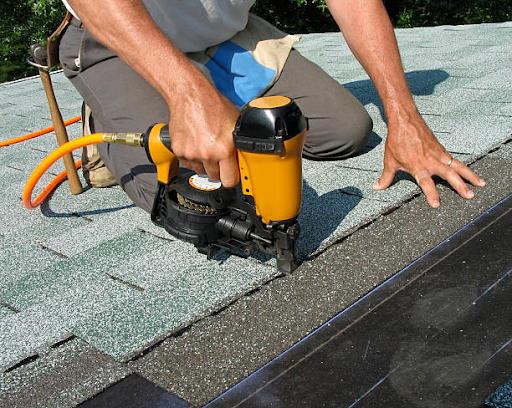
Steps Involved in Asphalt Roof Installation
Here’s a video tutorial to install roof shingles.
Asphalt roof installation involves a series of meticulous steps that ensure a durable, long-lasting, and protective roof for your home. Here’s a breakdown of the key steps involved:
1. Planning and Preparation
- Inspect the roof: Before embarking on the installation process, thoroughly inspect the roof deck for any damage or deterioration. Repair or replace any damaged sections to ensure a stable base for the new shingles.
- Obtain necessary permits: Depending on local regulations, you may need to obtain permits for roof replacement or installation. Check with your local building department to ensure compliance.
- Gather tools and materials: Assemble the necessary tools, including a hammer, roofing nails, chalk line, utility knife, and a nail gun. Gather the required asphalt shingles, underlayment, flashing, and drip edge.
2. Removing the Old Roof
- Protect the surrounding area: Cover plants, walkways, and windows with tarps or plastic sheeting to prevent debris from falling and causing damage.
- Remove old shingles: Carefully remove the old shingles, working from top to bottom. Use a pry bar or shingle remover to loosen the shingles and dispose of them properly.
- Inspect the roof deck: Once the old shingles are removed, thoroughly inspect the roof deck for any underlying damage. Repair or replace any damaged sections to provide a solid base for the new shingles.
3. Installing Underlayment
- Apply flashing: Install flashing around vents, chimneys, and other roof penetrations to prevent water infiltration.
- Lay underlayment: Install underlayment, a protective layer that helps prevent water from seeping through the roof deck. Start at the eaves and work your way up the roof, overlapping each layer by the recommended amount.
Importance of Professional Installation
While DIY asphalt roof installation may seem like a cost-saving option, hiring a professional roofing contractor offers several crucial advantages:
1. Expertise and Experience
Professional roofers possess the expertise, experience, and specialized tools required for proper asphalt roof installation. They are familiar with building codes, safety regulations, and manufacturer specifications, ensuring a high-quality and compliant installation.
2. Safety Precautions
Roofing work involves working at heights and handling heavy materials. Professional roofers are trained in safety procedures and have the necessary equipment to minimize the risk of accidents and injuries.
3. Efficiency and Timeliness
Professional roofers have the experience and skills to complete the installation process efficiently, minimizing disruption to your household. They can often complete the job within a shorter time frame compared to an inexperienced DIY attempt.
DIY Considerations and Tips
If you consider DIY asphalt roof installation, follow these considerations and tips for a safer and more successful project:
1. Assess Your Skills and Experience
Evaluate your carpentry skills, physical fitness, and ability to work at heights. If you have limited experience or concerns about safety, consider hiring a professional.
2. Obtain Proper Training and Guidance
Seek training or guidance from experienced roofers or attend workshops to learn proper installation techniques and safety procedures.
3. Follow Manufacturer Instructions
Carefully read and follow the manufacturer’s instructions for the specific shingles you are using. Each type of shingle may have unique installation requirements.
Cost Considerations of Asphalt Roof

Initial Costs (vs) Long-Term Savings
Asphalt roofs are a popular choice for homeowners due to their affordability and long-term savings potential. While the initial installation cost may seem like a significant investment, homeowners can expect to reap benefits such as durability, energy efficiency, and low maintenance over the lifespan of the roof.
Initial Costs
The initial cost of installing an asphalt roof varies depending on factors such as the size of the roof, the type of shingles used, and the labor costs in your area, However, asphalt roofs are generally less expensive than other roofing materials, such as metal or slate.
Average Cost of Asphalt Roof Installation
- National average: $7,500 to $10,000
- Cost per square foot: $1.71 to $3.12
Factors Affecting Initial Costs
- Roof size: Larger roofs require more materials and labor, increasing the cost.
- Shingle type: Architectural shingles offer a more dimensional appearance and are typically more expensive than basic three-tab shingles.
- Labor costs: Labor rates vary depending on location and roof complexity.
- Roof condition: Extensive repairs or modifications before shingle installation increase the cost.
- Permits and inspections: Obtaining necessary permits and inspections adds to the project cost.
Long-Term Savings
Asphalt Roofs Offer Several Long-Term Savings Opportunities
- Durability: Asphalt roofs have an average lifespan of 15-20 years reducing the frequency of replacements compared to other materials.
- Energy Efficiency: Asphalt shingles can reflect sunlight, reducing heat absorption and lowering cooling costs during summer months
- Maintenance: Asphalt roofs are relatively low-maintenance, requiring minimal upkeep compared to other roofing materials
Factors Influencing Asphalt Roof Pricing
The cost of an asphalt roof is influenced by several factors, including:
1. Roof Size
The larger the roof, the more shingles and materials will be required, increasing the overall cost.
2. Shingle Type
Different types of asphalt shingles have varying costs. For instance, architectural shingles, which offer a more dimensional appearance, are typically more expensive than basic three-tab shingles.
3. Labor Costs
Labor costs vary depending on your location and the complexity of the roof installation. Labor can account for up to 60% of the total cost.
4. Roof Condition
If your roof requires extensive repairs or modifications before installing new shingles, the overall cost will increase.
5. Permits and Inspections
Obtaining necessary permits and inspections may add additional costs to the project.
On that note, Asphalt roofs are a popular choice for homeowners due to their affordability, ease of installation, and wide variety of styles and colors. They offer a lifespan of 15-20 years and provide energy efficiency and low maintenance. When considering an asphalt roof for your home, it is important to factor in the initial installation costs, which can vary depending on roof size, shingle type, labor costs, and local regulations. However, the long-term savings often outweigh the upfront investment!!
References
- https://www.bobvila.com/articles/asphalt-shingles/
- https://www.roofingcalc.com/asphalt-shingles-pros-and-cons/
- https://islandexterior.com/3-tab-dimensional-architectural-shingles/
- https://www.greenbuildingadvisor.com/article/all-about-architectural-shingles
- https://www.qualroof.com/blog/history-of-asphalt-shingles
- https://web.archive.org/web/20111013025700/
- http://www.asphaltroofing.org/pdf/TB_202.pdf
- https://www.greenbuildingadvisor.com/article/roof-underlayment-requirements-in-cold-and-hot-climates
- https://earth911.com/home-garden/recyclable-asphalt-shingles/
- https://www.billraganroofing.com/
- https://www.homeadvisor.com/cost/roofing/asphalt-shingles-install-replace/
- https://www.billraganroofing.com/
- https://www.fixr.com/categories/roofing
- https://modernpros.com/new-roof-pricing/
- https://www.paceroofingphilly.com/blog/the-environmental-impact-of-your-roofing-choices-how-do-shingles-stack-up
- https://www.billraganroofing.com/
- https://www.homeadvisor.com/r/best-asphalt-roof-shingles/
- https://www.billraganroofing.com/
- https://www.homeadvisor.com/cost/roofing/asphalt-shingles-install-replace/

